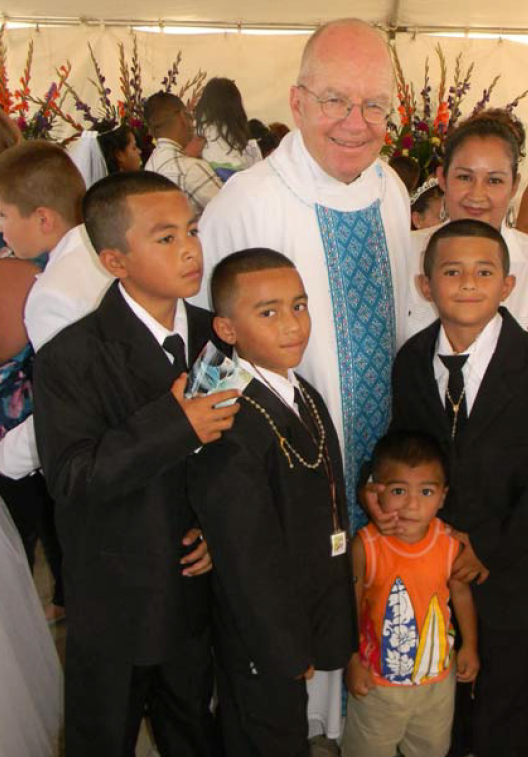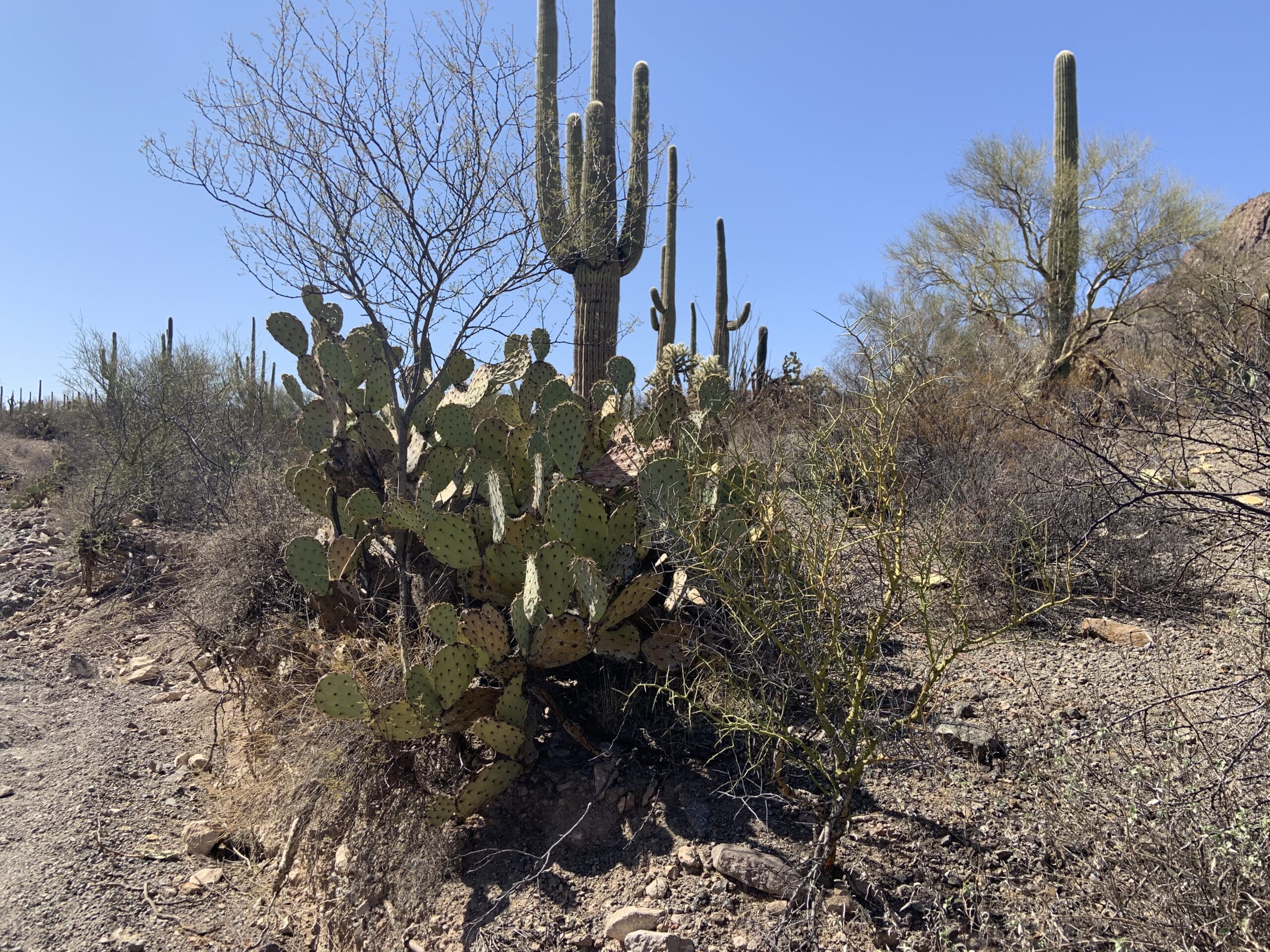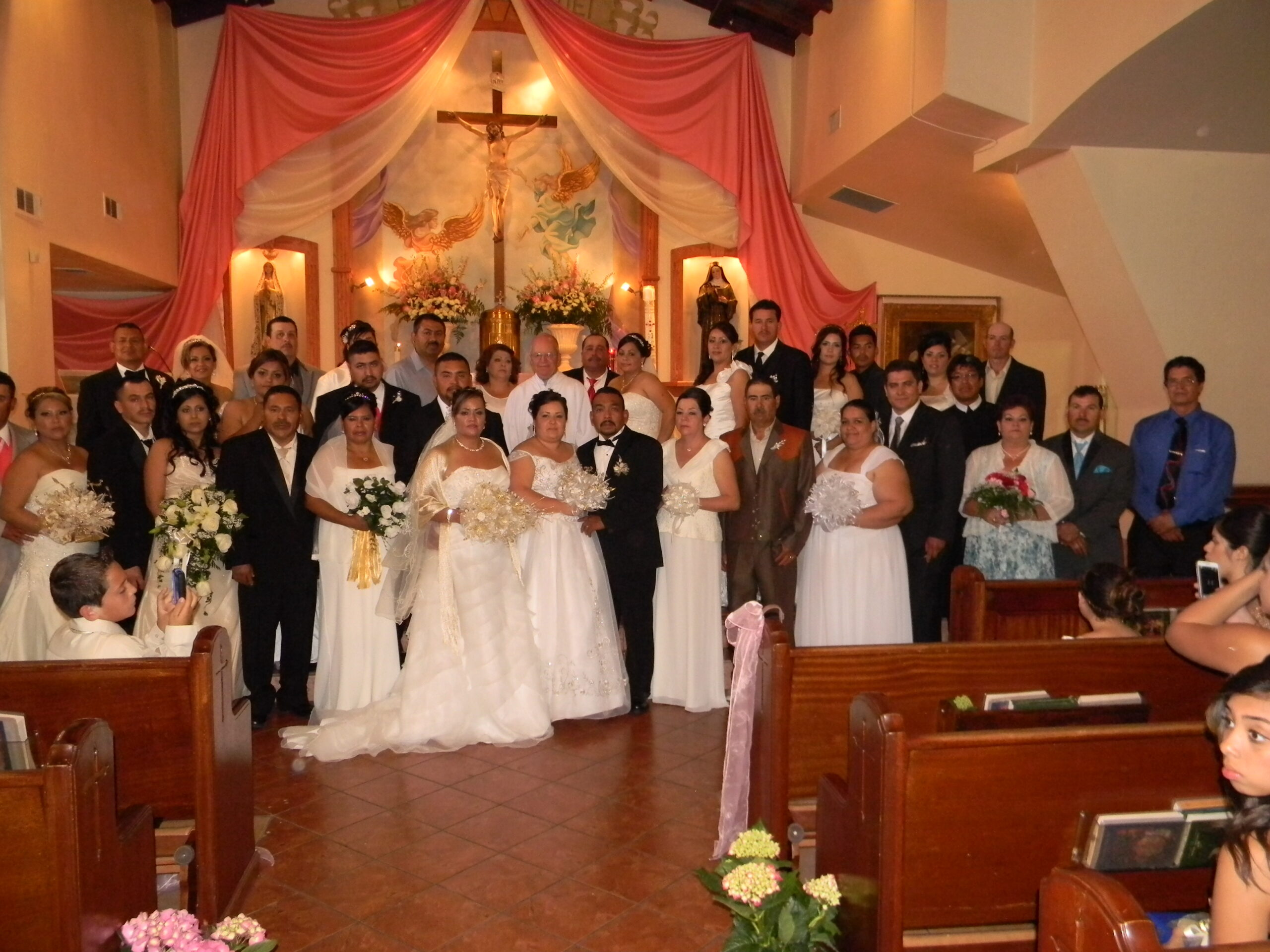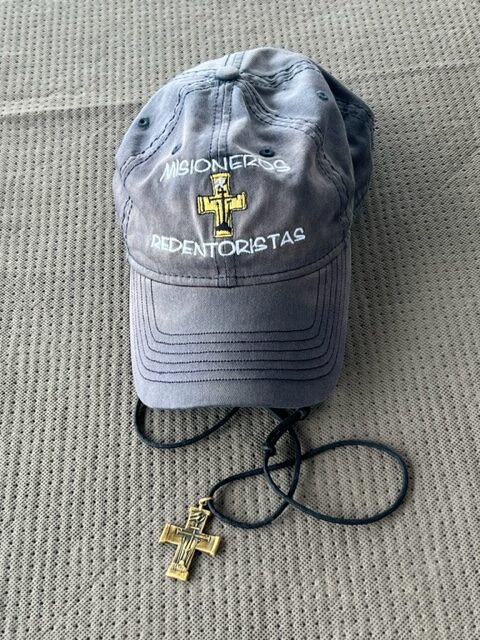Eucharist today: vocation / La eucaristía hoy: vocación
Here are ten themes to be covered considering participation in the Eucharist today:
- Role of the Eucharist in my own personal vocation story
- Benefits of celebration of Eucharist where migrants gather
- Exposure of obstacles to reception of First Eucharis that migrants experience
- Bishop John Steinbock’s reflection at Fresno Convocation of Clergy, 2010
- “You only have the time that God gives you”
- Responsibility of the priest to make the word and the sacramental presence of Christ present for the People of God
- Remember that the sacraments of Baptism, Confirmation and Eucharist are sacraments of initiation
- Involve the parents in the sacramental preparation of children
- The place of Mystagogia, continuing education and spiritual development
- Quality migrant ministry can inspire the ordinary ministry of our communities
Aquí hay diez temas considerando participación en la eucaristía hoy:
- Papel de la Eucaristía en mi propia historia vocacional personal
- Beneficios de la celebración de la Eucaristía donde se reúnen los migrantes
- Exposición de obstáculos a la recepción de la Primera Comunión que experimentan los migrantes
- Reflexión del obispo John Steinbock en Fresno Convocación de los Cleros, 2010
- “Solo tienes el tiempo que Dios te da”
- Responsabilidad del sacerdote de hacer presente la palabra y la presencia sacramental de Cristo para el Pueblo de Dios
- Recuerde que los sacramentos del Bautismo, la Confirmación y la Eucaristía son sacramentos de iniciación.
- Involucrar a los padres en la preparación sacramental de los niños.
- El lugar de mystagogia, educación continua y desarrollo espiritual
- Un ministerio migrante de calidad puede inspirar el ministerio ordinario de nuestras comunidades.
Eucharist and my vocation
My attraction to the priesthood began when I became an altar boy. I was ten-years-old. There were over 100 altar boys in our parish at that time. We were scheduled for Sunday Masses about once a month, but we also were scheduled for several weekday Masses each month. I lived across the street from the rectory and church. I began going to daily Masses in sixth grade to see if I could serve when someone failed to show up. Also, whenever I passed the church on the way to visit friends or coming home from delivering newspapers, I stopped in for a brief visit to the Blessed Sacrament. Today, that may sound overly pious for a child, but it was not uncommon to see other youth doing the same at Holy Name. In the late 1950’s and early 60’s, our parish routinely sent five to ten eighth graders to minor seminary.
Attendance at Mass was never an obligation, but a habitual action that was simply the way to begin a day. In the seminary, daily Mass was part of our routine, but my passion for the rest of the day centered on sports and the burden of each day was studies. I was not a great student, especially when it came to memorizing material. The two areas of education that most stressed memorization were the catechism and language studies. My sisters discovered in moving Mom from our old home to a senior living center that she kept all of our old report cards. They called me and said, “Do you know that you flunked a class in third grade?” “You flunked religion.” The same nun who flunked me in third grade told my Mom after I had broken a window in our classroom, “Don’t worry Mrs. McAndrew, someday your son will be a priest.” I had no idea why she would say that after flunking me in religion.
What truly attracted me to becoming a priest were the missions, particularly when Redemptorist missionaries from Brazil visited our school. Often, I met them when serving daily Masses. The vocational call was one to service, but often supported by participation in the Eucharist.
My seminary days coincided with the Second Vatican Council, the Civil Rights movement, and the Viet Nam war. Prayer, meditation and sacrament were supports for the life of a priest and missionary, but ministry often was an engagement with the challenges and injustices that the poor often experience. Eucharist was a constant in my own life, and a part of the ordinary ministry in parishes. As an associate pastor, I had responsibility in offering religious education for youth and the responsibility to welcome and prepare people for the sacraments, but often it was issues of morality and social justice that consumed my attention and energy. After all, as a Redemptorist missionary, I was called to serve the “most abandoned”.
When I began working with migrant farm workers, I began to recognize that my vocation to serve the “most abandoned” begins with offering spiritual care, the word and sacrament to those underserved in the ordinary ministry of the Church. In my childhood, we never imagined Mass outside a church building, but offering Masses in fields, barns, parks, homes, prisons and garages has helped me discover Christ in those who are on the periphery.
(Tomorrow: The Blessing of Masses where migrants gather)
Eucaristía y mi vocación
Mi atracción por el sacerdocio comenzó cuando me convertí en monaguillo. Yo tenía diez años. Había más de 100 monaguillos en nuestra parroquia en ese momento. Estábamos programados para misas dominicales aproximadamente una vez al mes, pero también estábamos programados para varias misas entre semana cada mes. Vivía al otro lado de la calle de la rectoría y la iglesia. Comencé a ir a misas diarias en sexto grado para ver si podía servir cuando alguien no se presentaba. Además, cada vez que pasaba por la iglesia de camino a visitar a amigos o al regresar a casa después de entregar periódicos, me detenía para una breve visita al Santísimo Sacramento. Hoy en día, eso puede sonar demasiado piadoso para un niño, pero no era raro ver a otros jóvenes haciendo lo mismo en Holy Name. A fines de la década de 1950 y principios de la de 1960, nuestra parroquia enviaba cada año cinco a diez estudiantes de octavo grado al seminario menor.
La asistencia a misa nunca fue una obligación, sino una acción habitual que era simplemente la forma de comenzar un día. En el seminario, la misa diaria era parte de nuestra rutina, pero mi pasión por el resto del día se centró en los deportes y la carga de cada día fueron los estudios. No era un gran estudiante, especialmente cuando se trataba de memorizar material. Las dos áreas de educación que más hicieron hincapié en la memorización fueron el catecismo y los estudios de idiomas. Mis hermanas descubrieron al trasladar a mamá de nuestra antigua casa a un centro para personas mayores que ella conservaba todas nuestras boletas de calificaciones. Me llamaron y me dijeron: “¿Sabes que reprobaste una clase en tercer grado?” “Reprobaste la religión”. La misma monja que me reprobó en tercer grado le dijo a mi mamá después de que rompí una ventana en nuestro salón de clases: “No se preocupe Sra. McAndrew, algún día su hijo será sacerdote”. No tenía idea de por qué diría eso después de reprobarme en religión.
Lo que realmente me atrajo a ser sacerdote fueron las misiones, particularmente cuando los misioneros Redentoristas de Brasil visitaron nuestra escuela. A menudo, los conocí cuando servía misas diarias. La llamada vocacional era de servicio, pero a menudo apoyada por la participación en la Eucaristía.
Mis días de seminario coincidieron con el Concilio Vaticano II, el movimiento por los derechos civiles y la guerra de Vietnam. La oración, la meditación y los sacramentos eran apoyos para la vida de un sacerdote y un misionero, pero el ministerio a menudo era un compromiso con los desafíos e injusticias que los pobres a menudo experimentan. La Eucaristía fue una constante en mi propia vida y una parte del ministerio ordinario en las parroquias. Como pastor asociado, tenía la responsabilidad de ofrecer educación religiosa a los jóvenes y la responsabilidad de recibir y preparar a las personas para los sacramentos, pero a menudo eran cuestiones de moralidad y justicia social las que consumían mi atención y energía. Después de todo, como misionero redentorista, fui llamado a servir a los “más abandonados”.
Cuando comencé a trabajar con campesinos migrantes, comencé a reconocer que mi vocación de servir a los “más abandonados” comienza con ofrecer cuidado espiritual, la palabra y el sacramento a los desatendidos en el ministerio ordinario de la Iglesia. En mi niñez, nunca imaginamos la misa fuera de un edificio de la iglesia, pero ofrecer misas en campos, graneros, parques, casas, cárceles y garajes me ha ayudado a descubrir a Cristo en los que están en la periferia.
(Mañana: Bendición de las misas donde se reúnen los migrantes)




